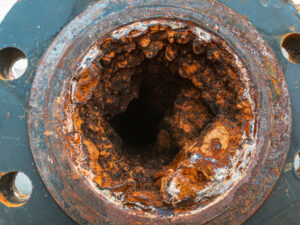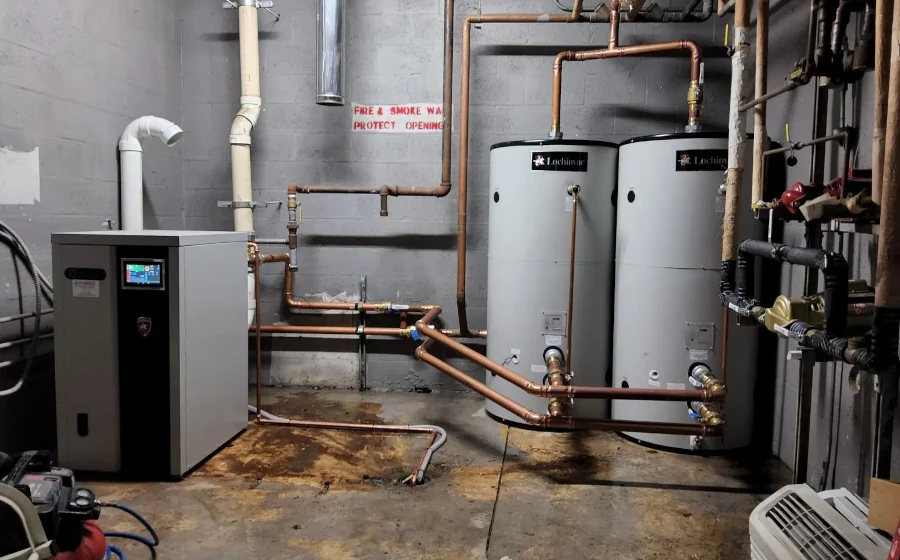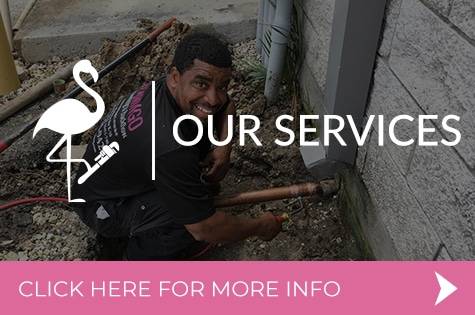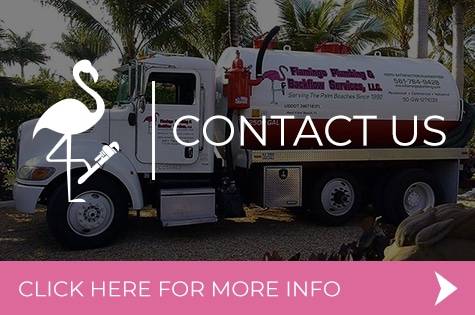Hard water is a common issue in Florida, particularly for high-rise buildings where extensive plumbing systems face constant use. The minerals in hard water—calcium and magnesium—build up over time, causing problems that range from reduced water pressure to costly repairs. Ignoring these issues can lead to long-term damage and increased operational costs for building owners. Understanding the impact of hard water on plumbing systems can help prevent these challenges and maintain the efficiency of your building.
1. Reduced Water Pressure on Upper Floors
In high-rise buildings, water pressure is already a concern because water has to be pumped up to higher floors. When hard water enters the equation, the situation gets worse. Mineral deposits like calcium and magnesium accumulate inside the pipes, forming a crusty layer that narrows the pipe diameter. This restriction reduces water flow and weakens the water pressure, especially on upper floors where pressure is already at its lowest.
Why this matters:
- Poor water pressure affects residents’ quality of life, leading to complaints.
- Showers, faucets, and even laundry machines become less effective.
- In some cases, water may not reach the top floors at all.
Routine maintenance to descale pipes and prevent buildup is essential in high-rises to ensure consistent water flow throughout the building.
Also read: Understanding Water Pressure In A Tankless Water Heater
 2. Corrosion That Weakens Pipe Integrity
2. Corrosion That Weakens Pipe Integrity
Hard water minerals don’t just cause scaling; they accelerate pipe corrosion, especially in older buildings that still rely on galvanized steel or copper pipes. Over time, the minerals react with the pipe material, causing rust and weakening the structure. Corroded pipes are not only more likely to leak but also prone to bursting, which can cause water damage to multiple floors in a high-rise.
Additional signs of corrosion:
- Frequent pipe bursts or water damage issues in walls and ceilings
- Increased water discoloration due to rust in the pipes
- Unexplained water pooling around plumbing fixtures
Corrosion can lead to structural damage to the building if not addressed quickly, making early detection and preventive action crucial.
3. Higher Energy Bills from Inefficient Water Heaters
Water heaters in high-rises must operate at high capacity to meet residents’ needs. When mineral deposits from hard water build up in the heating elements, the water heater has to work harder and longer to provide hot water. This inefficiency leads to higher energy consumption, meaning building owners face increased utility costs every month.
How to spot inefficiency:
- Hot water takes longer to reach the tap.
- Residents report lukewarm water despite a working system.
- The water heater requires frequent repairs, especially around the heating elements.
Installing a water softener can prevent mineral buildup and improve the lifespan and efficiency of water heaters, leading to significant savings over time. Regular maintenance checks can also help catch early signs of scaling, preventing system breakdowns.
4. Clogged Faucets and Showerheads
Faucets, showerheads, and other fixtures are often the first to show visible signs of hard water. Calcium deposits form on the aerators and showerhead nozzles, leading to reduced water flow or complete blockages. The minerals may also leave unsightly white or chalky stains on these fixtures, making them look worn and dirty even with regular cleaning.
Simple ways to handle clogged fixtures:
- Clean or replace aerators regularly.
- Use vinegar or descaling solutions to dissolve mineral buildup.
- Invest in water filtration systems for each unit to reduce the impact of hard water on fixtures.
While these solutions help, addressing the root cause—hard water—through softeners or filtration systems can save time and money in the long run.
5. Damage to Water-Using Appliances

Hard water affects a range of appliances in high-rise buildings, from dishwashers to boilers. The minerals in hard water cause scaling inside these appliances, reducing their efficiency and lifespan. Washing machines may require longer cycles to clean clothes, while dishwashers leave spots on glassware and can malfunction over time. The increased workload due to scaling forces these appliances to work harder, leading to more frequent repairs or even early replacements. Installing water softeners can mitigate these issues, extending the life of appliances and reducing overall maintenance costs.
6. Increased Likelihood of Leaks
Scaling caused by hard water doesn’t just block pipes—it weakens them. Over time, as mineral deposits accumulate, the interior walls of the pipes become more brittle and prone to cracking. Even minor leaks can turn into major water damage problems in high-rise buildings, especially if they go undetected for long periods.
Why leaks are a major concern in high-rises:
- Water leaks can lead to mold growth, which poses health risks.
- Leaks can damage structural components like walls and ceilings.
- Multiple units may be affected by a single leak, increasing repair costs.
Preventive measures:
- Regular pipe inspections to detect early signs of damage.
- Installing water softeners to reduce mineral buildup and prevent scaling.
Quick action to repair leaks and install preventative systems is key to minimizing damage and costs.
7. Frequent Toilet Malfunctions
Toilets are especially susceptible to hard water problems. Mineral deposits can clog flushing mechanisms, leading to inefficient flushing or complete malfunction. When hundreds of toilets in a high-rise are affected, it creates a massive plumbing headache for property managers.
Common signs of hard water in toilets:
- Slow flushing or partial flushing
- Mineral buildup in the tank or bowl
- Frequent repairs needed to fix flushing components
Addressing hard water at its source with a softening system can prevent the need for constant toilet repairs and ensure proper water flow and functionality.
8. Costly Maintenance and Repairs
The cumulative effect of all these hard water issues is increased maintenance costs. Scaling and corrosion lead to frequent repairs, from replacing clogged fixtures to fixing leaky pipes. Without a long-term solution like water softening, building owners face escalating repair bills, not to mention the risk of more serious damage that could affect tenants’ satisfaction and property value.
Why maintenance is critical:
- Ignoring the effects of hard water leads to more costly, long-term repairs.
- Maintenance costs skyrocket as systems break down under the pressure of hard water.
- Preventive solutions like softening systems and regular descaling save money in the long run.
High-rises with hard water problems benefit from investing in water treatment solutions early to avoid major system failures down the line.
How Flamingo Plumbing Solves Hard Water Problems in Florida High-Rises
Hard water challenges in high-rises require professional solutions. Flamingo Plumbing offers comprehensive water treatment services tailored specifically for high-rise buildings. From installing building-wide water softeners to conducting regular maintenance and descaling, we ensure your plumbing systems run smoothly, efficiently, and cost-effectively.
Services we offer:
- Water Softener Installations: Whole-building solutions that reduce hard water problems at the source.
- Descaling and Maintenance: Regular upkeep to prevent pipe blockages and corrosion.
- Energy-Efficient Water Heater Solutions: Protect your heating systems from mineral buildup and save on energy costs.
Avoid expensive repairs and ensure the long-term health of your high-rise plumbing with Flamingo Plumbing’s expert services.





